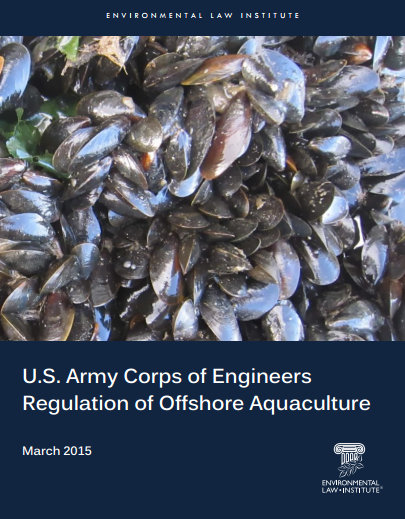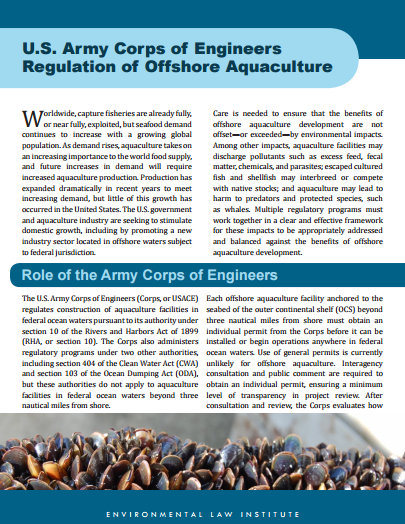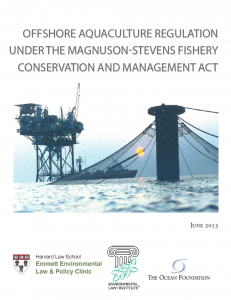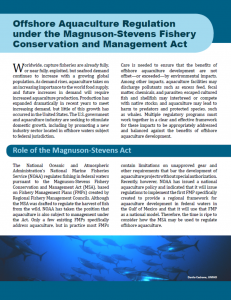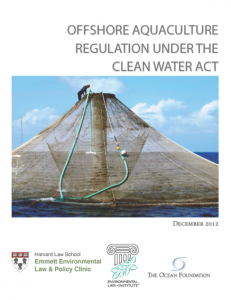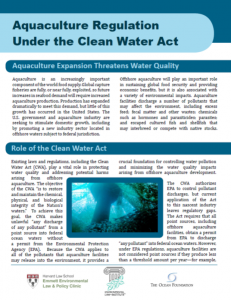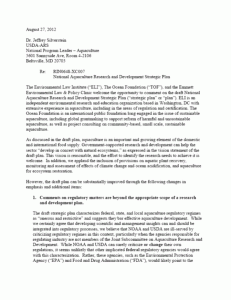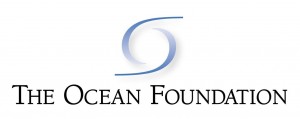Offshore Aquaculture
Click below for our most recent publications, or read on for more information on offshore aquaculture and our past work on the subject:
U.S. Army Corps of Engineers Regulation of Offshore Aquaculture (March 2015)
FACT SHEET: U.S. Army Corps of Engineers Regulation of Offshore Aquaculture (March 2015)
Background
Aquaculture is an increasingly important component of the world food supply. Global capture fisheries are fully, or near fully, exploited, so future increases in seafood demand will require increased aquaculture production.
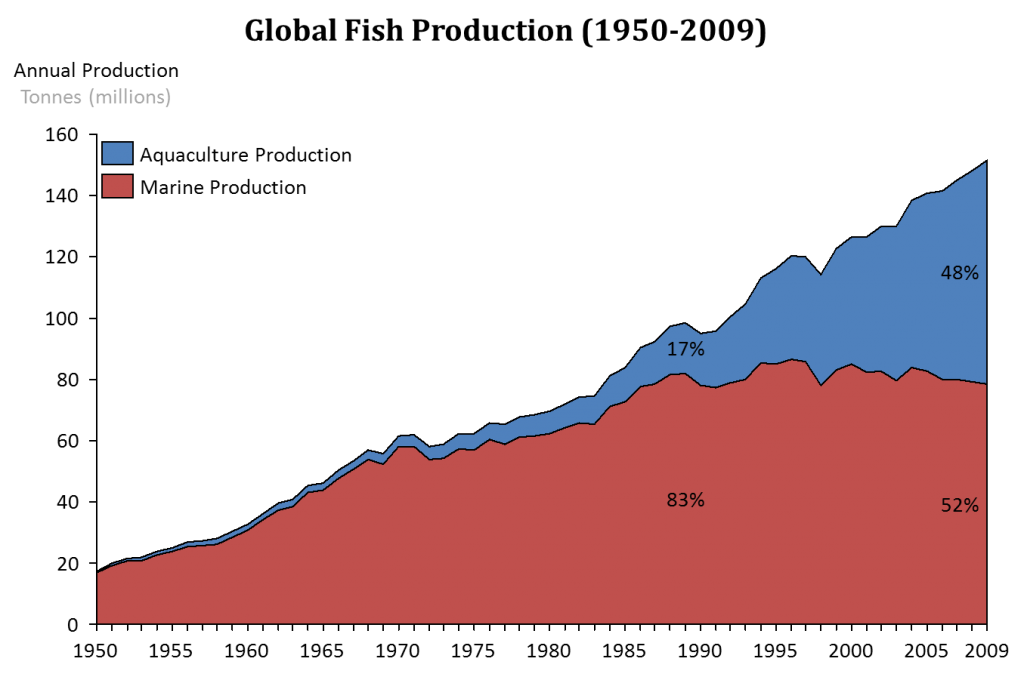
Source: FAO FISHSTAT. Excludes freshwater wild capture landings and higher order ISSCAAP groups from wild capture landings
Production has expanded dramatically to meet this demand, but little of this growth has occurred in the United States. The U.S. government and aquaculture industry are seeking to stimulate domestic growth, including by promoting a new industry sector located in offshore waters subject to federal jurisdiction.
Environmental Impacts of Offshore Aquaculture
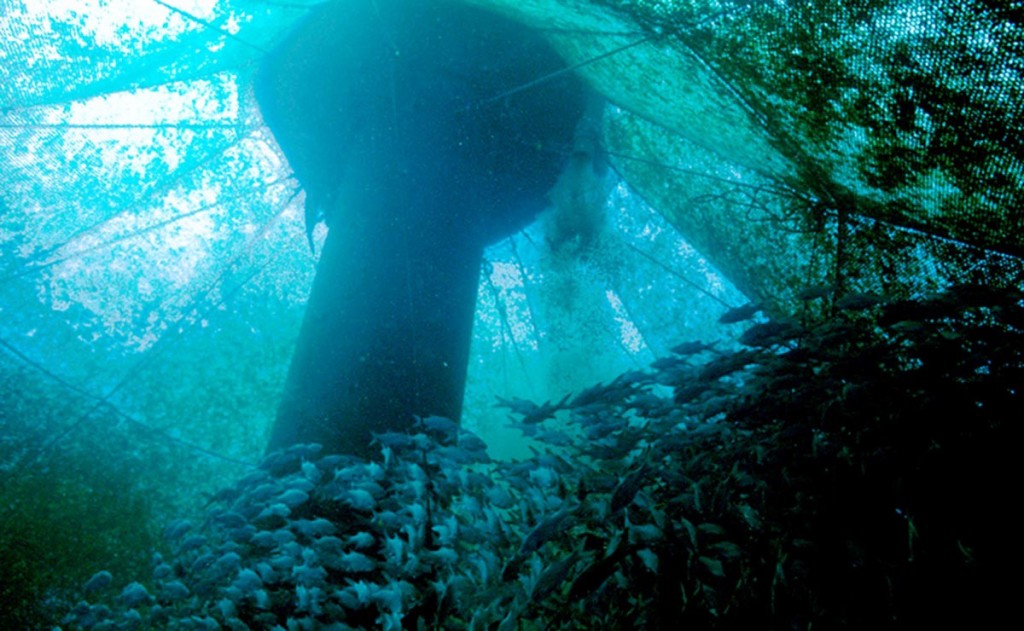
While offshore aquaculture will play an important role in sustaining global food security and may provide economic benefits, it is also associated with a variety of environmental impacts. Aquaculture facilities discharge a number of pollutants that may affect the environment, including:
- excess feed;
- fecal matter and other wastes;
- chemicals, such as hormones and parasiticides;
- parasites; and
- escaped cultured organisms that may interbreed or compete with native stocks.
Aquaculture may also result in other impacts, including harm to predators such as whales, birds, and sharks and use of unsustainable feed sources. Careful management can avoid or minimize these impacts both for individual facilities and on a cumulative basis and can ensure that offshore aquaculture is not built on damaging or unsustainable practices.
Legal Frameworks
A variety of laws and programs apply to offshore aquaculture, including but not limited to the Clean Water Act, Magnuson-Stevens Fishery Conservation and Management Act, Ocean Dumping Act, Rivers and Harbors Act, Endangered Species Act, Marine Mammal Protection Act, and Migratory Bird Treaty Act. Congress has considered creating a comprehensive regulatory scheme for offshore aquaculture management to clarify and simplify offshore aquaculture governance, but to date consensus has proven difficult to achieve. As a result, government agencies, producers, and other stakeholders must navigate a complex regulatory landscape.
For more information on offshore aquaculture regulation:
Offshore Aquaculture Regulation Under the Magnuson-Stevens Fishery Conservation and Management Act (June 2013)
Offshore Aquaculture Regulation under the Magnuson-Stevens Act (June 2013)
Offshore Aquaculture Regulation Under the Clean Water Act (Full Report) (Dec. 2012)
Aquaculture Regulation Under the Clean Water Act (Summary) (Dec. 2012)
Comment Letter to NOAA and the USDA on Aquaculture Research and Development (Aug. 2012)
Project Partners
ELI is working in collaboration with partners at Harvard Law School’s Emmett Environmental Law and Policy Clinic and The Ocean Foundation to clarify and improve how aquaculture is managed in United States federal ocean waters.
